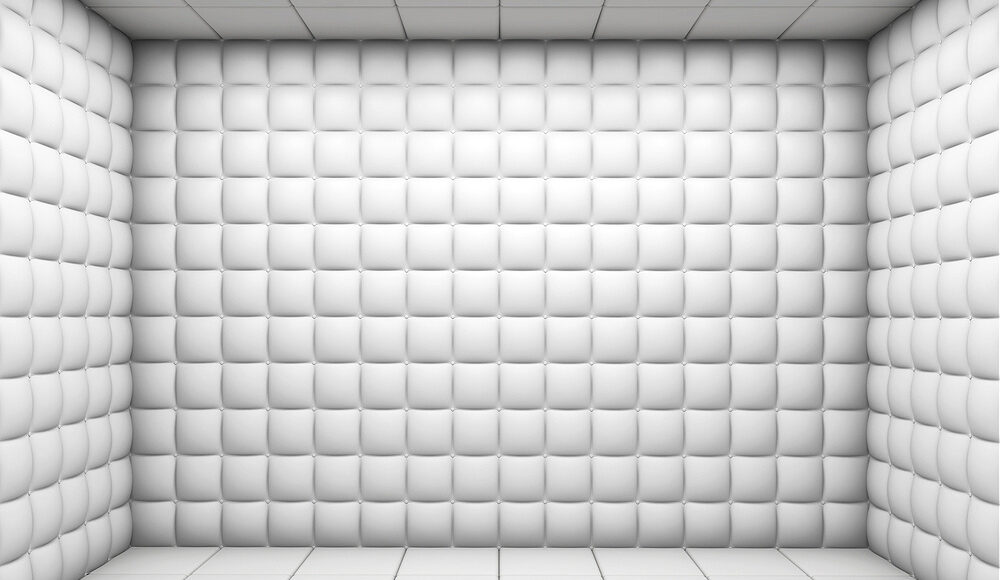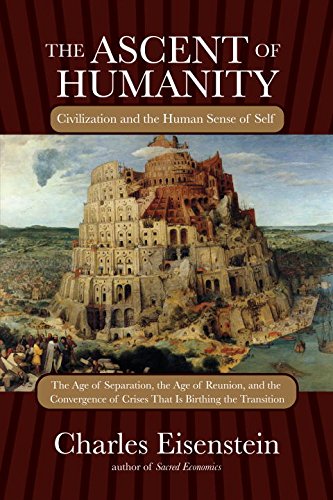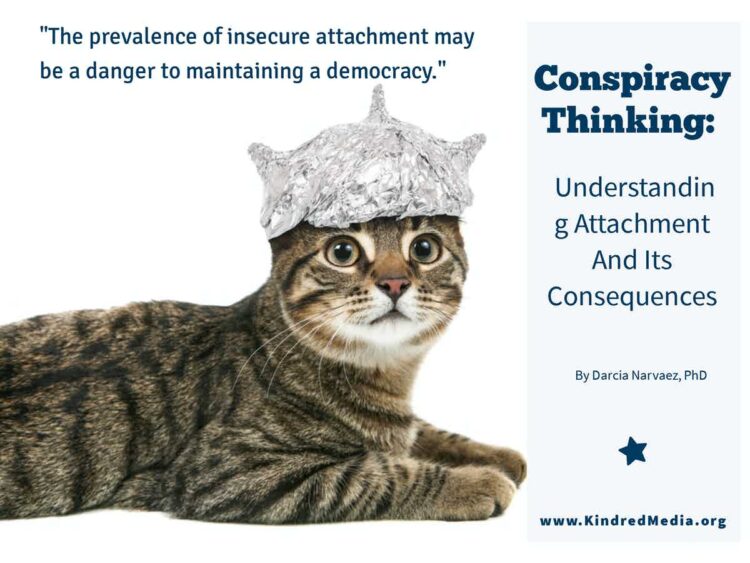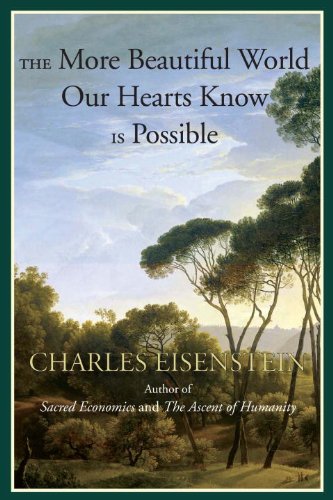To Reason With A Madman
Someone sent me a video on January 19th in which the host, claiming a secret source among the White Hat power faction, said that final plans are in motion to overthrow the criminal Deep State once and for all. The inauguration of Joe Biden will not take place. The lies and crimes of the human trafficking Satanic elite will be revealed. Justice will prevail. The Republic will be restored. Perhaps, he said, the Deep State will make a last desperate attempt to hold onto power by staging a phony inauguration, with deep-fake video effects to make it look like Chief Justice John Roberts has really sworn in Joe Biden. Don’t be fooled, he said. Trust the plan. Donald Trump will continue as the real President, even if the entire mainstream media says otherwise.
This video has a million views.
It is hardly worth the time to critique the video on its own terms, as it is an unremarkable example of its genre. I do not suggest you watch it. What needs to be taken seriously and with alarm is this: the fracturing of the knowledge commons into disjoint realities is now so far advanced that large numbers of people continue believing Donald Trump is secretly President to this day, while Joe Biden occupies a Hollywood studio faked out as the White House. This is a dilute version of the far more widespread belief (tens of millions of people) that the election was stolen.
In a functioning democracy, the two sides could argue the question of whether the election was stolen by drawing evidence from mutually acceptable sources of fact. Today no such source exists. Most of the media has constellated into separate and mutually exclusive ecosystems, each the domain of a political faction, making it impossible to have a debate. All that’s left, as you may have experienced, is a shouting match. Without debate, one must resort to other means to achieve victory in politics: force rather than persuasion.
This is one reason why I think democracy is over. (Whether we ever had it, or how much of it, is another question.)
Suppose I wanted to persuade a far right Trump-supporting reader that claims of election fraud are baseless. I could cite reports and fact-checks on CNN or the New York Times or Wikipedia, but none of those are credible to that person, who assumes, with quite some justification, that these publications are biased against Trump. The same is true if you are a Biden supporter and I try to persuade you of massive election fraud. Evidence for that is only to be found in right-wing publications that you will dismiss out of hand as unreliable.
Let me save the indignant reader some time and write your scathing critique of the above for you. “Charles, you are establishing a false equivalency here that is shockingly ignorant of certain indisputable facts. Fact one! Fact two! Fact three! Here are the links. You are doing a disservice to the public by even broaching the possibility that the other side is worth listening to.”
When even one side believes that, we are no longer in a democracy. My point here isn’t to hold both sides equal. My point is that no conversation is happening, or can happen. We are past democracy now. Democracy depends on a certain level of civic trust, a willingness to decide the disposition of power through peaceful, fair elections informed by an objective press. It requires a willingness to engage in conversation or at least debate. It requires that a substantial majority hold something – democracy itself – to be more important than victory. Otherwise we are in a state either of civil war or, if one side is dominant, a state of authoritarianism and rebellion.
At this point it is clear which side has the upper hand. There is a kind of poetic justice in that the right wing – who perfected the information technology of hate-mongering and narrative warfare in the first place – is now its victim. Conservative pundits and platforms are rapidly being purged from social media, from app stores, even from the Internet entirely. In today’s environment, for me to even say this arouses suspicions that I myself am a conservative. I am quite the opposite. But like a minority of Left journalists like Matt Taibbi and Glenn Greenwald, I am appalled at the canceling, deplatforming, censoring, and demonizing of the right (including 75 million Trump voters) in what can only be called Total Information Warfare. In Total Information Warfare (as in military conflict) a key tactic is to make your opponents look as bad as possible. How can we have a democracy if we are being incited to hate each other by the very media we depend on to tell us what is real, what is “news,” and what the world is?
It looks today like the Left is beating the Right at its own game: the game of censorship, authoritarianism, and the suppression of dissent. But before you celebrate the expulsion of the Right from social media and public discourse, please understand the inevitable result: the Left will become the Right. This is already long underway, as the overwhelming presence of neocons, Wall Street insiders, and corporate champions in the Biden administration demonstrates. The partisan information warfare that began as a left-right conflict, with Fox on one side and CNN and MSNBC on the other, is rapidly reforming into a struggle between the Establishment and its challengers.
When Big Tech, Big Pharma, and Wall Street are on the same side as the military brass, the intelligence services, and the majority of government officials, it will not be long before those censored are those who disturb their agenda.
Glenn Greenwald makes the point well:
There are times when powers of repression and censorship are aimed more at the left and times when they are aimed more at the right, but it is neither inherently a left-wing nor a right-wing tactic. It is a ruling class tactic, and it will be deployed against anyone perceived to be a dissident to ruling class interests and orthodoxies no matter where on the ideological spectrum they reside.
For the record, I don’t think Donald Trump is still President, nor do I think there was massive election fraud. However, I also think that if there were, we’d have no guarantee of finding out about it, because the very mechanisms of suppressing election fraud misinformation could also be used to suppress that information were it true. When corporate-government powers have captured the press and our means of communication (the internet), what is to stop them from quashing dissent?
* * *
As a writer who has for the last twenty years upheld countercultural views on many issues, I face a dilemma. The evidence I can cite to buttress my views is fading from the knowledge commons. The sources I might use to undermine dominant narratives are illegitimate precisely because they undermine dominant narratives. The guardians of the internet enforce this illegitimacy through a million means: algorithmic suppression, tendentious search term autofill, demonetizing dissident channels, flagging dissenting views as “false,” canceling accounts, censoring citizen journalists, and so on.
The resulting epistemic bubble leaves the average citizen just as much in unreality as someone who believes Trump is still President. The cult-like character of QAnon and the far right is plain to see. What is less obvious (especially to those within it) is the increasingly cult-like character of the mainstream. What else can we call it but a cult, when it controls information, punishes dissent, spies on its members and controls their physical movements, lacks transparency and accountability in leadership, prescribes what its members should say, think, and feel, encourages them to denounce and spy on each other, and upholds a polarized us-versus-them mentality? I am certainly not saying that everything the mainstream media, science, and academia say is wrong. However, when powerful interests control information they can lock reality out of the picture and bring the public to believe absurdities.
Perhaps that is what culture does generally. “Culture” comes from the same linguistic root as “cult.” It generates a shared reality, by conditioning perception, patterning belief, and directing creation. What is different today is that entrenched forces are desperately trying to maintain a reality that no longer fits the consciousness of the public, which is rapidly moving out of the Age of Separation. The proliferation of cults and conspiracy theories mirrors the increasingly unhinged absurdity of official reality and the lies and propaganda that maintain it.
Put another way, the lunacy that was the Trump Presidency was not a deviation from a trajectory toward greater and greater sanity. It was not a stumble on the road from Medieval superstition and barbarism toward a rational, scientific society. It drew its power from a gathering cultural turbulence, just as a river generates increasingly violent countereddies as it approaches its plunge over the waterfall.
Recently as a writer I have had the feeling of trying to reason a madman out of his madness. If you’ve ever tried to reason with a QAnon, you know what I’m talking about as I try to reason with the public mind. I don’t mean to uphold myself as the one sane individual in a world gone mad (thereby demonstrating my own insanity), but rather to speak to a sense I’m sure many readers share: that the world has gone crazy. That our society has spun off into unreality, lost itself in an illusion. Hope as we might to assign the madness to a small and deplorable subset of society, it is in fact a general condition.
As a society, we are asked to accept the unacceptable: the wars, the prisons, the deliberate famine in Yemen, the evictions, the land grabs, the domestic abuse, the racial violence, the child abuse, the ripoffs, the confinement meat factories, the soil destruction, the ecocide, the beheadings, the torture, the rape, the extreme inequality, the persecution of whistleblowers…. On some level, we are all aware that it is crazy to proceed with life as if all this were not happening. To live as if reality were not real – that is the essence of insanity.
Also pushed to the margins of official reality is much of the wonderful healing and creative power of human beings and other-than-human beings. Ironically, if I bring up some examples of these extraordinary technologies, for example in the areas of medicine, agriculture, or energy, I invite accusations of being “unrealistic.” I wonder if the reader, like I do, has direct experience of phenomena that are not officially real?
I am much tempted to try to make the case the modern society is confined to a narrow unreality, but this is precisely the problem. Any examples I invoke from beyond acceptable political, medical, scientific, or psychological (un)reality automatically discredit my argument and make me a suspect character to anyone who does not already agree with me.
Here, let’s do a little experiment. Hey everyone, free energy devices are real, I’ve seen one! There, do you trust me more now or less? Anyone questioning official reality has this problem. Look what happens to journalists who point out that America does all the things it accuses Russia and China of doing (meddling in elections, sabotaging power grids, building back doors into electronics). You won’t often find them on MSNBC or the New York Times. The manufacture of consent described by Herman and Chomsky goes far beyond consent for war. By controlling information, dominant institutions engineer passive public consent to the perception-reality matrix that sustains their dominance. The more successful they are in controlling reality, the more unreal it becomes, until we reach the extreme where everyone pretends to believe but no one really does. We are not there yet, but we are fast approaching it. We are not yet at the state of late Soviet Russia, when virtually no one took Pravda and Izvestia at face value. The unreality of official reality is not yet so complete, nor is the censorship of unofficial realities. We are still at the stage of repressed alienation, where many harbor a vague sense of living in a VR matrix, a show, a pantomime. What is repressed tends to come out in extreme and distorted form; for example, conspiracy theories that the earth is flat, the the earth is hollow, that Chinese troops are massing on the US border, that the world is run by baby-eating Satanists, and so on. Such beliefs are symptoms of locking people in a matrix of lies and telling them it is real. The more tightly the authorities control information in an attempt to preserve official reality, the more virulent and widespread the conspiracy theories will become. Already, the canon of “authoritative sources” is shrinking to the point where US foreign policy critics, Israeli/Palestinian peace activists, vaccine skeptics, holistic health researchers, and ordinary dissidents like myself risk exile to the same internet ghettos as full-bore conspiracy theorists. Indeed, to a large extent we dine at the same table. What choice is there, when mainstream journalism is derelict in its duty to vigorously challenge power, than to draw from citizen journalists, independent researchers, and anecdotal sources to make sense of the world?
* * *
I realize I am overstating my difficulty, exaggerating the case in order to tease out the reason for my recent feelings of futility. The reality offered for our consumption is by no means self-consistent nor complete; its gaps and contradictions may be exploited to invite people to question its sanity. My point is not to bewail my helplessness, but to explore whether there is a more powerful way for me to use my words in the face of the derangement I have described.
I have been writing for nearly 20 years about the defining mythology of civilization that I call the Story of Separation and its consequences: the Program of Control, the mindset of reductionism, the war on the Other, the polarization of society. Obviously, my essays and books have not redeemed my naive ambition to prevent the very circumstances we face today. I must confess to weariness. I am tired of explaining phenomena like Brexit, the Trump election, QAnon, and the Capitol riot as symptoms of a much deeper malady than mere racism or cultism or stupidity or insanity. I know how to write that essay. I would expose hidden assumptions various sides share and the questions few are asking. I would propose how the tools of peace and compassion might reveal the underlying causes of the affair. I would preempt accusations of false equivalency, both-sidesism, and spiritual bypassing by describing how compassion enables us to transcend the endless war on the symptom to address root causes. I would describe how the War on Evil has led to the current situation, how the Program of Control creates more and more virulent forms of that which it tries to stamp out, because it cannot see the full set of conditions that produce its enemies. These conditions, I would explain, include at their core a profound dispossession stemming from the breakdown of defining myths and systems. Finally I would describe how a different mythology of wholeness, ecology, and interbeing would motivate a new politics.
Over five years I’ve made my case for peace and compassion – not as moral imperatives but as practical necessities. I have little new to say about the current internecine strife in my country. I could take the basic conceptual tools of my previous work and apply it to the present situation, but instead I am taking a pause, listening to what might be underneath the exhaustion and feeling of futility. Readers who want from me a more detailed take on current politics can extrapolate from recent essays on peace, war mentality, polarization, compassion, and dehumanization. It’s all there in Building a Peace Narrative, The Election: Hate, Grief, and a New Story, QAnon: A Dark Mirror, Making the Universe Great Again, The Polarization Trap, and others.
So, I am taking a break from writing expository prose, or at least slowing down. This doesn’t mean that I am giving up and going into retirement. To the contrary. Listening to my body and its feelings, after deep meditation, counsel, and medicine work, I am preparing to do something I’ve not tried before.
In The Conspiracy Myth I explored the idea that the Controllers of the “New World Order” are not a conscious group of human evildoers, but are ideologies, myths, and systems that have taken on a life of their own. It is these beings who pull the puppet strings of those we normally believe to hold power. Behind the hatred and divisiveness, behind the corporate totalitarianism and information warfare, the censorship, and the permanent bio-security state, powerful mythic and archetypal beings are at play. They cannot be confronted literally, but in their own realm.
I intend to do that through a story, probably to take the form of a screenplay but possibly another medium of fiction. Some of the scenes that have come to me are breathtaking. My aspiration is a work so beautiful that people cry when it is over because they don’t want it to end. Not an escape from reality, but a turn more deeply into it. Because what is real and possible is far bigger than the cult of normal would have us believe.
I cheerfully admit I have little reason to believe I am capable of writing such a thing. I have never displayed much talent for fiction. (Neither, however, do the screenwriters for a certain popular show which I’ve been watching with my son. It wouldn’t be kind to say which one.) I will do my best, and trust that I would not have been shown such a piercingly beautiful vision if there were no way to get there.
For years I’ve written of the power of story. It is time for me to deploy this technology fully, in service of a new mythology. Expository prose generates resistance, but stories touch a deeper place in the soul. They flow like water around intellectual defenses, and soften the soil so that dormant visions and ideals can take root. I was about to say that my goal is to encode the ideas I’ve worked with into fictional form, but that’s not quite it. It is that what I want to express is bigger than expository prose can accommodate. Fiction is larger and truer than nonfiction, and any explanation of a story is less than the story itself.
The mode of story that may release me from my personal impasse may also bear relevance for the larger cultural impasse. At a time when lack of agreement on a valid source of facts makes debate impossible, what can bridge the divide? Maybe here too it is stories: both fictional stories that carry truths that are otherwise inaccessible through barriers of fact control, and personal stories that rehumanize each other to each other.
The former includes the kind of counter-dystopian fiction I intend to create (not necessarily painting a picture of Utopia, but striking a note of healing that the heart recognizes as authentic). If dystopian fiction serves as “predictive programming” preparing the public for an ugly, brutal, or ruined world, we can also program the opposite, invoking and normalizing healing, redemption, change of heart, and forgiveness. We desperately need stories in which the resolution is not that the good guys beat the bad guys at their own game (violence). History tells us what inevitably comes thereafter: the good guys become the new bad guys, just as in the information warfare I discussed earlier.
With the latter type of story, that of personal experience, we can reach each other on a core human level that cannot be rebutted or denied. You can argue with the interpretation of a story, but you can’t argue with the story itself. With the willingness to seek stories of those outside one’s familiar corner of reality, we may fulfill the potential of the internet to restore the knowledge commons. Then we will have the ingredients of a democratic renaissance. Democracy depends on a shared sense of We the People. There is no We if we see each other through partisan caricatures and don’t engage directly. When we hear each others’ stories, we know that in real life, good versus evil is rarely the truth, and domination is rarely the answer.
My intention for 2021 is to produce a story of the first kind, an emanation from a future I like to call “the more beautiful world our hearts know is possible.” You may see fewer essays from me in 2021. I will continue to give the occasional interview for podcasts and online events, but not at the frenetic schedule of last year. Those who support me through my website or Patreon should know this, in case you would like to modify your support in either direction.
This is the most excited I’ve felt about a creative endeavor since I wrote The Ascent of Humanity in 2003-2006. I feel life stirring, life and hope. I think dark times are upon us in America and probably many other places. In the past year I’ve gone through periods of profound despair, as things came to pass that I’d spent twenty years trying to prevent. All my efforts seemed in vain. Yet now, as I take up a new direction, hope blossoms in me that others will do the same, and the human collective as well. For haven’t our furious efforts to make a better world proved futile too, judging by the current state of ecology, economy, and politics? Aren’t we as a collective also becoming exhausted by the fight?
A key theme of my work has been to invoke causal principles other than force: morphogenesis, synchronicity, the ceremony, the prayer, the story, the seed. Ironically, many of my essays are themselves of a forceful type: they marshal evidence, exert logic, and make a case. It is not that technologies of force are inherently bad; they are just limited, and insufficient to the challenges we face. Domination and control have gotten civilization to where it is today, for good and for ill. Cling to them as we might, they will not resolve autoimmune disease, poverty, ecological collapse, racial hatred, or the trend toward extremism. These will not be stamped out. In the same vein, the restoration of democracy will not come because someone wins an argument. And so, I am happy to declare my readiness to turn toward engaging the world non-forcefully. May that choice be part of a morphic field by which humanity collectively does the same.





